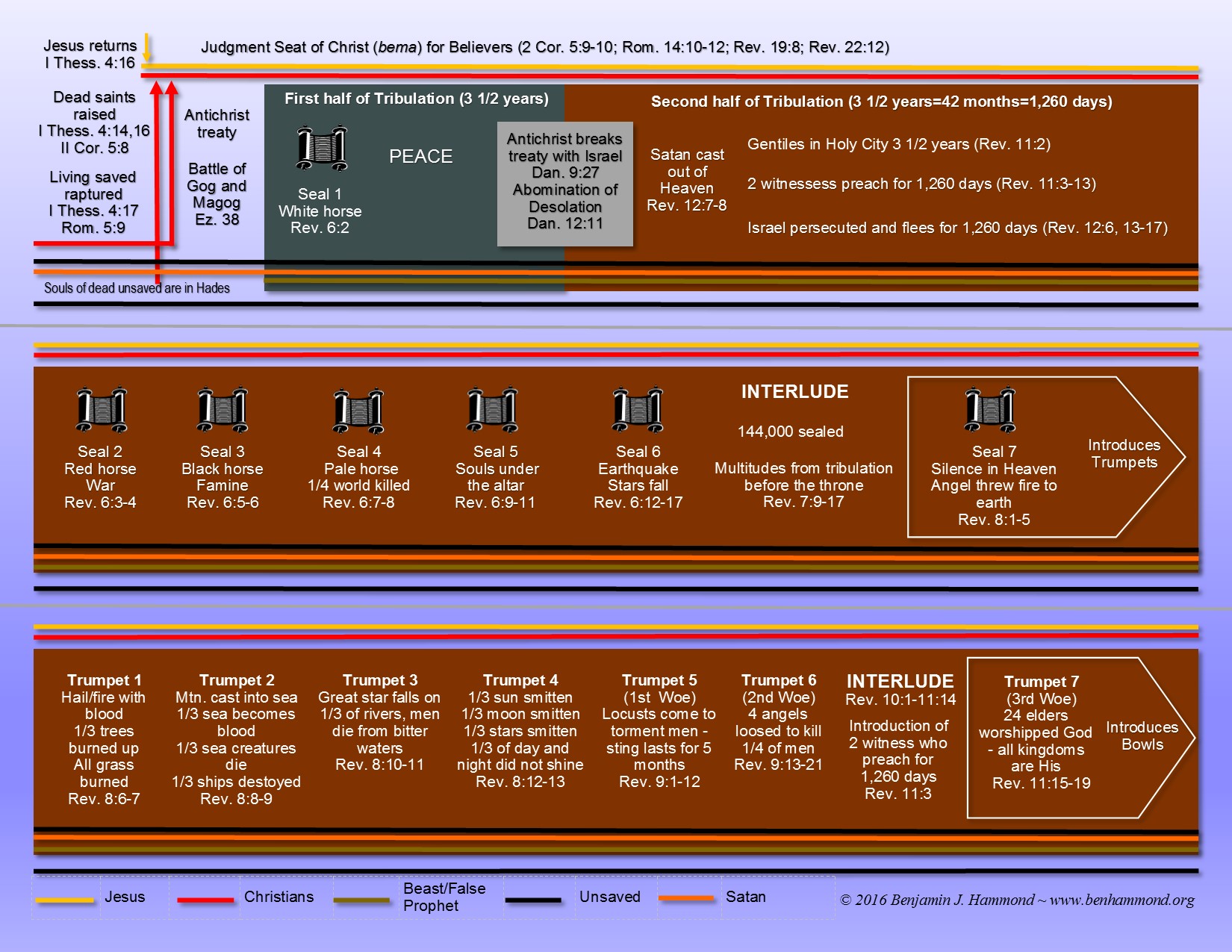Can you be removed from the Book of Life?
…if anyone takes away from the words of the book of this prophecy, God shall take away his part from the Book of Life, from the holy city, and from the things which are written in this book. (Revelation 22:19)
Wait…what? We can have our names removed from the Book of Life? So, we can lose our salvation after all…
Not so fast.
While it may seem like that is exactly what this passage says, a closer look suggests an entirely different meaning. All we have to do is a little hermeneutical examination, and I believe we can gain a correct understanding. That, of course, begins with context.
Before we get to the context, we should point out that some manuscripts say “tree of life” rather than “book of life,” but in the end, the interpretation stays the same. True believers will be recorded in the Book of Life and will enjoy access to the Tree of Life in the new Jerusalem, both of which indicate eternal salvation.
Now for the context. Like most Bible passages, verses 18 and 19 join in a thought that runs not only throughout chapter 22, but the whole book of Revelation. This prophecy of John describes incredible suffering that will come upon the earth as God’s holy wrath exacts retribution from rebellious sinners and the nation of Israel finally recognizes her Messiah. In the final chapter, a command is given repeatedly to pay attention to this “book of prophecy” (which, by the way, refers specifically to the book of Revelation).
The first example is given by Jesus Himself in the form of a blessing for those who pay attention to the message of Revelation.
“Behold, I am coming quickly! Blessed is he who keeps the words of the prophecy of this book.” (Revelation 22:7)
The next admonition comes from the mouth of an angel.
And he said to me, “Do not seal the words of the prophecy of this book, for the time is at hand.” (Revelation 22:10)
This stands in direct contrast to the command the prophet Daniel received concerning his vision of the end times. He was told to seal it up (Daniel 8:26). In Daniel’s time, the fulfillment was a long way off; in John’s time, it was much closer.
Before the next command to heed the message of Revelation, an invitation was given:
And the Spirit and the bride say, “Come!” And let him who hears say, “Come!” And let him who thirsts come. Whoever desires, let him take the water of life freely. (Revelation 22:17)
It’s as if God is saying, “You’ve heard about all that will happen in this world. You’ve heard about the New Earth and New Jerusalem. Are you coming or not?”
Then, right after the invitation comes a dire warning:
For I testify to everyone who hears the words of the prophecy of this book: if anyone adds to these things, God will add to him the plagues that are written in this book; and if anyone takes away from the words of the book of this prophecy, God shall take away his part from the Book of Life, from the holy city, and from the things which are written in this book. (Revelation 22:18-19)
What is he talking about? Does it mean if you add something to the book or take something away, that you lose your salvation?
Before you jump to that conclusion, let me point out two observations, then see what it means for us.
First observation: This is a common way to stress the importance of obedience.
We see a similar warning given by Moses as he addressed the people of Israel before they entered the Promised Land.
Now, O Israel, listen to the statutes and the judgments which I teach you to observe, that you may live, and go in and possess the land which the Lord God of your fathers is giving you. You shall not add to the word which I command you, nor take from it, that you may keep the commandments of the Lord your God which I command you. (Deuteronomy 4:1-2)
It is natural to try to modify a message we don’t like into something more palatable, and Israel’s Law was no exception. However, the command was simple: “Don’t do it.”
We probably don’t like some of what we see in Revelation, either. Who takes pleasure in reading about a God who avenges sin? Who enjoys watching God slaughter a third of humanity in one bloody fell swoop? That’s not the kind of God embraced by our modern holiness-deficient theology.
Toward the end of Deuteronomy, Moses issued another similar warning, this time to the person who might disregard the Law and serve other gods:
…and so it may not happen, when he hears the words of this curse, that he blesses himself in his heart, saying, ‘I shall have peace, even though I follow the dictates of my heart’—as though the drunkard could be included with the sober. “The Lord would not spare him; for then the anger of the Lord and His jealousy would burn against that man, and every curse that is written in this book would settle on him, and the Lord would blot out his name from under heaven. (Deuteronomy 29:19-20)
Again, we have a warning about someone who receives a command but rejects it.
So, that’s the first observation: This is a common way to stress the importance of obedience.
Second observation: It is a warning to those who reject the invitation (unbelievers).
You will recall that verses 18 and 19 are a warning for those who do not accept the invitation given in verse 17. An invitation does not go out to people who have already arrived at an event, but to those who are not yet present. The Spirit and the bride offer an invitation to “come” to those who still need to come. The invitation is therefore directed at people who are not yet believers, and have to make a choice.
What does that mean for this grim warning? It means that it is given to unbelievers—not believers. It is for those who reject the invitation. They reject God’s judgment on humanity that permeates Revelation, so they attempt to soften it up a bit. Maybe they transform it into a soft allegory, eviscerating its vicious sting. Maybe they assume John (or some sadist using John as a pseudonym) made it all up. Or they may simply discard some of the prophecy as rubbish, because they, in their infinite wisdom, assume that a loving God would not act in such a manner.
They do not like it, so they change it. But you can’t do that with this book. At least, not without inviting the curses on yourself.
We should also note that the text does not say that God will remove a name from the Book of Life. Rather, it states that God will “take away his part” from the Book of Life. The word “part” means “allotment.” In other words, there is an allotment reserved for someone who will not receive it. It does not say they have it and lose it. The name was not there at one time, then removed. It never was there. It is similar to receiving an offer to a banquet—there is a place for you if you want it. But if you decline it, the place will be given to someone else. The people who reject the message of Revelation as it stands will never receive what has been offered to them.
So, we have observed that calling down curses is a common way of stressing the importance of obedience and that this warning is issued to unbelievers rather than believers. Let’s conclude by summarizing the meaning of this passage in one sentence.
Conclusion: Revelation 22:18-19 is a warning: If you reject God’s offer of life, you will experience God’s wrath.
Ultimately, the book of Revelation points to the holiness of God. Those who accept will not tamper with the message, liberating them from the book’s terrible prophecies. Those who insult God’s holiness by changing the message will experience the full wrath of God.




Hello, I feel like I may have accidently talked about the bible to someone but misinterpreted it or said something wrong without knowing. I have always believed in God and Jesus. I just started getting into the bible and started learning more about the bible and my faith. I do believe but I feel like i get led astray sometimes and thats something that is slowly changing in my life. I feel because I talked about the bible before and a way I perceived it ( I didnt say it was a fact i said it was my perception at the time ) that I will lose my part in the book of life. I am still learning a lot about the bible and I am very fascinated.. I just don’t want to accidently mess up.
Greetings my Brother, Great that you are sharing and learning! Please don’t stop or get disappointed. The world is in desperate need of Christians like yourself. Just remember to always say, before you speak about the Word, if you are not 100% certain, that what you are about to say is your opinion, or understanding. And, Please don’t be misled by those out there today, and in the past, that speak of the necessity of ‘speaking in tongues’ or the belief of ‘the second baptism of the Holy Spirit’. There is no necessity for speaking in tongues or second baptism of the Holy Spirit. These are the ‘types’ of adding to or taking away from the Word that is spoken of in REV 22:19. Carry on in Peace and may God Bless you, steve
Hello. I was sharing with my Bible study group that in the scripture, Jeremiah 32:39, when God says, “And I will give them one heart, and one way, that they may fear me forever, for the good of them, and their children after them: That “to fear” God is to revere, to honor, to regard Him first before all, rather than to be afraid of God. Did I add to His word? That was not my intention. Thank you for your response. Lois
It sounds to me like you were just explaining what the word means–you were not adding to His Word. Defining terms is a great way to learn and teach. God bless!